Publications
HHS Region 3 TTCs Publications & Resources

Central East ATTC:
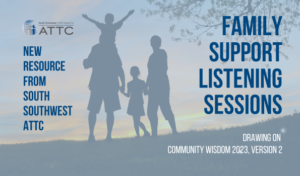 Family Support Listening Sessions: Drawing on Community Wisdom 2023, Version 2 details the process and results of further community outreach conducted in 2023 to augment the initial phase of the consultation process. This includes organizing a fresh series of listening sessions involving family members and loved ones of individuals who engage in substance use.
Family Support Listening Sessions: Drawing on Community Wisdom 2023, Version 2 details the process and results of further community outreach conducted in 2023 to augment the initial phase of the consultation process. This includes organizing a fresh series of listening sessions involving family members and loved ones of individuals who engage in substance use.
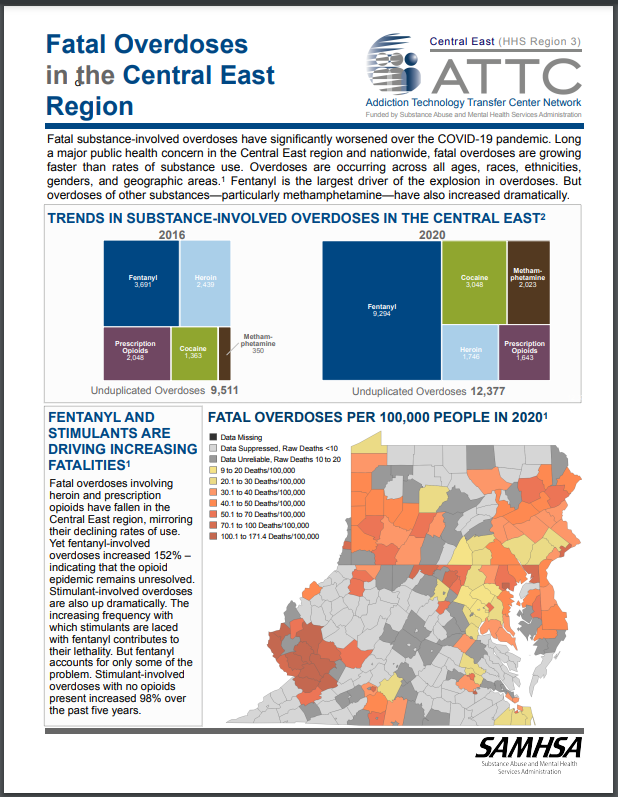 Fatal Overdoses in the Central East Region – Factsheet discusses the increase of overdose fatalities within HHS Region 3. In 2020, the Central East contained 9 of the 10 counties and independent cities with the highest fatal overdose rates in the United States. Over 80% (87) of the counties and cities in the region with reliable data had an overdose rate above the national average.
Fatal Overdoses in the Central East Region – Factsheet discusses the increase of overdose fatalities within HHS Region 3. In 2020, the Central East contained 9 of the 10 counties and independent cities with the highest fatal overdose rates in the United States. Over 80% (87) of the counties and cities in the region with reliable data had an overdose rate above the national average.
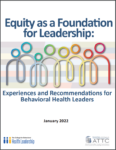 2022: Equity as a Foundation for Leadership: Experiences and Recommendations for Behavioral Health Leaders – A report that describes and defines EquityGrounded Leadership for use by behavioral health leaders in Health and Human Services Region 3 states. This report builds on the Institute’s ongoing efforts to improve diversity, increase cultural competency, and address population-specific needs of people receiving and delivering behavioral health services in Region 3.
2022: Equity as a Foundation for Leadership: Experiences and Recommendations for Behavioral Health Leaders – A report that describes and defines EquityGrounded Leadership for use by behavioral health leaders in Health and Human Services Region 3 states. This report builds on the Institute’s ongoing efforts to improve diversity, increase cultural competency, and address population-specific needs of people receiving and delivering behavioral health services in Region 3.
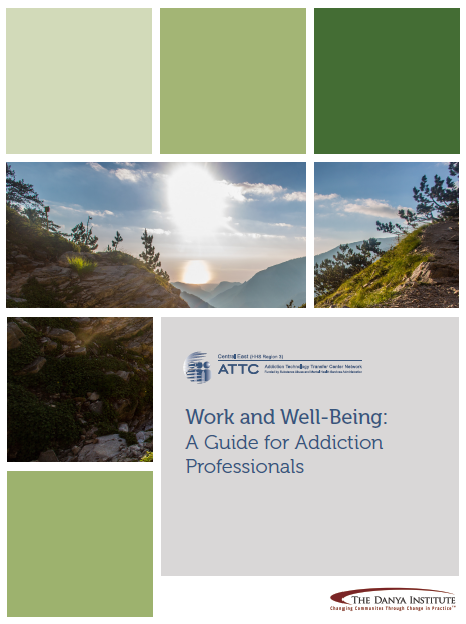 The Central East ATTC’s revised Work and Well-Being – A Guide for Addiction Professionals identifies common workplace stressors and how to prevent burnout. It is available in English as a free pdf download. The guide provides strategies that agencies and addiction professionals can use to promote overall self-care. Topics include: professional and personal development, employee wellness incentives, mental wellness, recovery management, and exercise.
The Central East ATTC’s revised Work and Well-Being – A Guide for Addiction Professionals identifies common workplace stressors and how to prevent burnout. It is available in English as a free pdf download. The guide provides strategies that agencies and addiction professionals can use to promote overall self-care. Topics include: professional and personal development, employee wellness incentives, mental wellness, recovery management, and exercise.
The Impacts of Trauma on Substance Use within LGBTQ communities explores the intersection of trauma and Substance Use Disorder in LGBTQ communities in our webinar. Uncover unique sources like family rejection and survivor’s guilt from the AIDS epidemic, and delve into the distinct influences impacting Substance Use Disorders.
View more products from the Central East ATTC.
Central East MHTTC:
 Years 1 – 5 Northwest MHTTC School Mental Health Supplement Summary – Explore the achievements of the School Mental Health Supplement to the Northwest MHTTC during its initial five years of operation through this infographic summary.
Years 1 – 5 Northwest MHTTC School Mental Health Supplement Summary – Explore the achievements of the School Mental Health Supplement to the Northwest MHTTC during its initial five years of operation through this infographic summary.
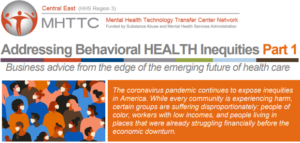 Addressing Behavioral Health Inequities Part 1 & Part 2 – This two-part series provides information on how the behavioral health system can employ the tools of population health management for planning and redesigning. Part 1 describes and provides strategies on how to implement population management. Part 2 discusses value-based reimbursement.
Addressing Behavioral Health Inequities Part 1 & Part 2 – This two-part series provides information on how the behavioral health system can employ the tools of population health management for planning and redesigning. Part 1 describes and provides strategies on how to implement population management. Part 2 discusses value-based reimbursement.
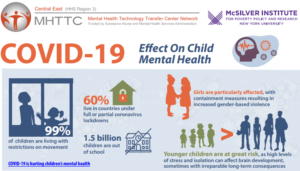 COVID-19 Effect on Child Mental Health Fact Sheet – Children have been removed from schools, friends, sports, and activities due to COVID-19. This is a traumatic event for many but children have added fears without knowing how to communicate their anxiety.
COVID-19 Effect on Child Mental Health Fact Sheet – Children have been removed from schools, friends, sports, and activities due to COVID-19. This is a traumatic event for many but children have added fears without knowing how to communicate their anxiety.
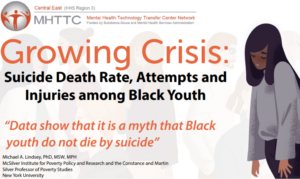 Growing Crisis: Suicide Death Rate, Attempts and Injuries among Black Youth – Infographic on the growing suicide death rate, attempts and injuries among Black youth. The resource discussing recent findings, challenges, what we know, and what we can do.
Growing Crisis: Suicide Death Rate, Attempts and Injuries among Black Youth – Infographic on the growing suicide death rate, attempts and injuries among Black youth. The resource discussing recent findings, challenges, what we know, and what we can do.
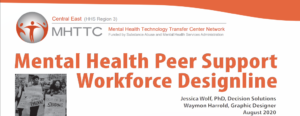
Mental Health Peer Support Workforce Designline – This timeline provides a historical overview about the evolution and significance of the peer support workforce.
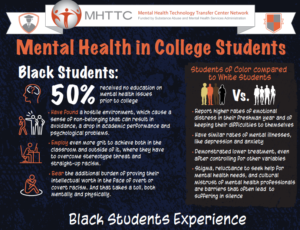
Mental Health in College Students – A downloadable fact sheet highlighting the complexity of Black college students’ experiences and how they impact their mental health.
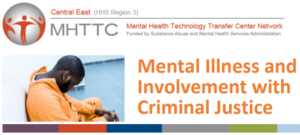 Mental Illness and Involvement with Criminal Justice (Brief No.1) – This brief (the first in a series) emphasizes opportunities to divert individuals with serious mental illness at various points of contact with the criminal justice system and explores the complexities that contribute to the difficulties these individuals face.
Mental Illness and Involvement with Criminal Justice (Brief No.1) – This brief (the first in a series) emphasizes opportunities to divert individuals with serious mental illness at various points of contact with the criminal justice system and explores the complexities that contribute to the difficulties these individuals face.
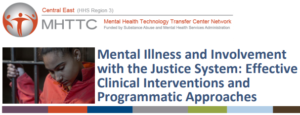
Mental Illness and Involvement with the Justice System: Effective Clinical Interventions and Programmatic Approaches (Brief No. 2) – This brief (the second in a series) offers a closer look at clinical and programmatic approaches responsive to the needs of justice-involved individuals with serious mental illness.
Supporting Children of Incarcerated Parents: A Tip Sheet for Educators and School Staff
Supporting Children of Incarcerated Parents: A Tip Sheet for Parents and Caregivers
Tip Sheet: Burnout and Virtual Fatigue in Teletherapy
Tip Sheet: Teletherapy for Individual Services
View more products from the Central East MHTTC.
Central East PTTC:
Infographic: Making Sense of Adolescent Risk and Protective Factors for Alcohol, Cannabis, and E-Cigarettes – Substance use prevention professionals, like many others, have been significantly impacted by the COVID-19 pandemic and the social distancing measures to address it. Many prevention professionals are now working from home, and many venues and spaces where prevention interventions can be implemented are currently closed. Furthermore, with so much focus on the pandemic, it can be difficult for substance use prevention messages to gain traction or for work with stakeholders on environmental strategies to continue.
Substance Use Prevention Resources for Use During a Pandemic – Substance use prevention professionals, like many others, have been significantly impacted by the COVID-19 pandemic and the social distancing measures to address it. Many prevention professionals are now working from home, and many venues and spaces where prevention interventions can be implemented are currently closed. Furthermore, with so much focus on the pandemic, it can be difficult for substance use prevention messages to gain traction or for work with stakeholders on environmental strategies to continue.
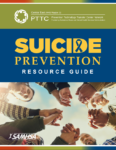 Suicide Prevention Resource Guide – this Guide is intended to support suicide prevention stakeholders and other interested individuals by providing a comprehensive list of suicide prevention resources, as of April 2020. These suicide prevention hotlines and other resources contained in this document are located within the Central East Region (i.e., Delaware, Maryland, Pennsylvania, Virginia, West Virginia, and the District of Columbia). The document is organized into two primary sections: 1) National hotlines and resources developed or supported by the Substance Abuse and Mental Health Services Administration (SAMHSA), other Federal agencies, or national nonprofit organizations; and 2) State-specific hotlines and resources developed by state agencies or statewide or local nonprofit organizations.
Suicide Prevention Resource Guide – this Guide is intended to support suicide prevention stakeholders and other interested individuals by providing a comprehensive list of suicide prevention resources, as of April 2020. These suicide prevention hotlines and other resources contained in this document are located within the Central East Region (i.e., Delaware, Maryland, Pennsylvania, Virginia, West Virginia, and the District of Columbia). The document is organized into two primary sections: 1) National hotlines and resources developed or supported by the Substance Abuse and Mental Health Services Administration (SAMHSA), other Federal agencies, or national nonprofit organizations; and 2) State-specific hotlines and resources developed by state agencies or statewide or local nonprofit organizations.
View more products from the Central East PTTC.

Archived:
Central East ATTC:
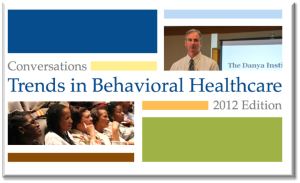 Conversations: Trends in Behavioral Health 2012 Edition – a collection of original articles on trends in the field of behavioral healthcare.
Conversations: Trends in Behavioral Health 2012 Edition – a collection of original articles on trends in the field of behavioral healthcare.- An Overview of Evidence-Based Practices: Implementing Science Based Interventions in Practical Settings features updated articles previously published in the Dialogue newsletter, related to the use of evidence-based practices in drug abuse treatment. The document also includes a discussion about technology transfer, the identification and implementation of evidence-based practices and other new resources on evidence-based practices.
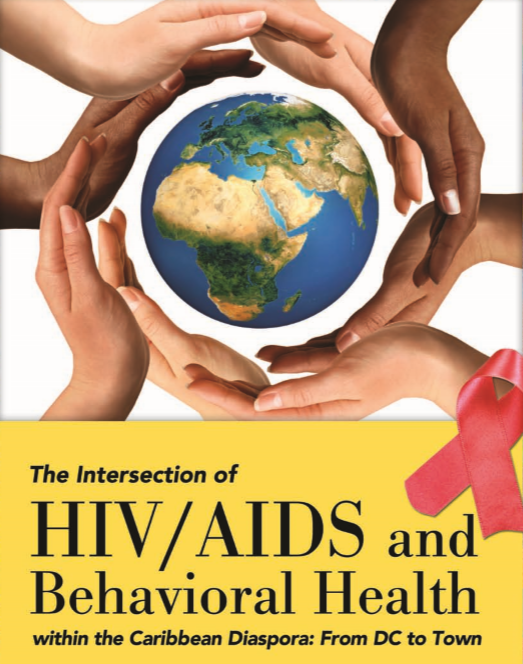 The Intersection of HIV/AIDS and Behavioral Health within the Caribbean Diaspora: From DC to Town – In honor of the 2012 International AIDS Conference, The Danya Institute, Inc. convened AIDS 2012 participants interested in networking with others interested in the topic: “The Intersection of HIV/AIDS and Behavioral Health within the Caribbean Diaspora: From DC to Town” at the Embassy of Trinadad and Tabago.
The Intersection of HIV/AIDS and Behavioral Health within the Caribbean Diaspora: From DC to Town – In honor of the 2012 International AIDS Conference, The Danya Institute, Inc. convened AIDS 2012 participants interested in networking with others interested in the topic: “The Intersection of HIV/AIDS and Behavioral Health within the Caribbean Diaspora: From DC to Town” at the Embassy of Trinadad and Tabago.- Outreach Competencies: Minimum Standards for Conducting Street Outreach for Hard-to-Reach Populations – the purpose of this document is to promote and guide the professionalization of the field of outreach work through consistent training, certification, and job development. This brochure identifies the minimum knowledge, skills and attitudes for conducting street outreach for hard to reach populations.

